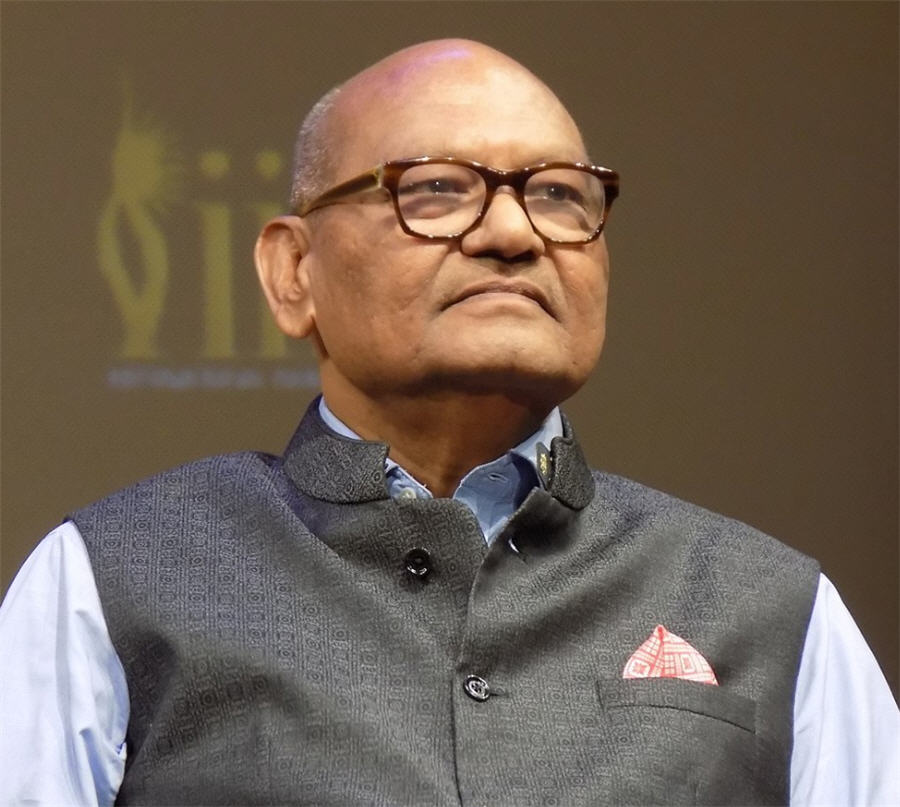Billionaire’s copper plant, job losses pressure a key Modi ally

In a vital south Indian state that starts voting on Thursday, small upstart political parties are luring voters concerned about jobs, economic growth and pollution, threatening to upend Prime Minister Narendra Modi’s election strategy in this key region.
In Tamil Nadu, a small breakaway group, called Amma Makkal Munnettra Kazagam, is attempting to make inroads in one district by promising to shutter a copper smelter run by mining giant Vedanta Ltd. due to pollution concerns. Vedanta denies that the factory has been a polluter, but the new party is resonating with local villagers, some of whom blame an ally of Modi’s ruling party for failing to act against the company owned by billionaire Anil Agarwal.
“Already the smoke from the plant used to form a blanket above our heads, and any expansion at the factory would lead right up to our village borders,” said factory welder Balamurugan Marimuthu, 24, who in 2014 voted for the state’s ruling All India Anna Dravida Munnetra Kazhagam party, known as AIADMK. “This time I have decided to go for a different party that has promised to keep the plant closed.”
The AIADMK is now a Modi ally, and its performance will be vital for him to retain power should his Bharatiya Janata Party fail to keep its majority in parliament
The AIADMK is now a Modi ally, and its performance will be vital for him to retain power should his Bharatiya Janata Party fail to keep its majority in parliament. The regional party won 37 of the state’s 39 seats in 2014, but it’s on the back foot this year as rivals gain ground.
While the BJP has traditionally exerted the most influence in India’s north and west, it’s pushing to expand its appeal to other parts of India so it can offset any setbacks in traditional strongholds. A smaller number of seats for its ruling coalition would make it harder for Modi to implement his social and economic policies.
Big economy
Tamil Nadu, one of the most industrialized states in India, is home to 72 million people and factories of companies like Hyundai Motor Co. and Caterpillar Inc. It’s seen recent declines in foreign investment, leading to concerns about job creation. The two main national parties have wielded little direct influence in the state, relying instead on regional allies.
The Vedanta plant in the district of Thoothukudi produces 40 percent of India’s copper output, and its troubles are emblematic of the challenges the BJP and its ally face in the region. In recent years, as Vedanta announced plans to expand, protests erupted on concerns about pollution. Things escalated last year, when more than a dozen protesters were killed in a police firing. After the incident, the factory was shuttered by the state government.
A year later, the economy of the district has virtually shut down, with locals divided on whether the factory should be allowed to resume operations, with some focused on potential health hazards and others on employment. Congress’s local ally, the Dravida Munnetra Kazhagam, is seeking to benefit from the anger over the incumbent party’s handling of the situation.
The developments around Vedanta’s unit, known as Sterlite, may work in the favor of the DMK in the district, said R. Manivannan, head of the Department of Politics and Public Administration at the University of Madras.
“The most important thing is that the entire anti-Sterlite protests are also about the people, the death of protesters,” he said. “So all this is going to go against the BJP.”
The DMK says it will prevail this year in Tamil Nadu, largely because voters are concerned about jobs.
Meanwhile, Vedanta has sought to have the plant reopened, pointing to the economic pressures from the closure. In addition to the 4,400 jobs lost directly due to the shutting of the smelter, about 15,500 others were indirectly rendered unemployed while about 98,400 more were affected in the consumer or downstream industries, the company said in a statement.
Splinter party
The outlook for Tamil Nadu’s elections this year is particularly uncertain because of the deaths in recent years of two political heavyweights, J Jayalalithaa of the AIADMK and M Karunanidhi of the DMK, both of whom were towering figures in state politics for decades. Jayalalithaa left no clear successor, fueling the break up in the AIADMK.
DMK’s transition has been smoother with Karunanidhi’s son taking over.
In 2014, the BJP triumphed in just one of the seven seats it decided to fight in Tamil Nadu, although the party says it’s supported development and expansion in the state.
The fate of Vedanta is fueling deep divisions among voters uncertain about their economic future
The AIADMK has no plans to currently reopen the Vedanta plant, but says it remains confident of a landslide victory. Yet in Thoothukudi district, the fate of Vedanta is fueling deep divisions among voters uncertain about their economic future.
“I want to give Modi five more years and see what level he can achieve in 10 years,” said S. Murugan, who runs a transport business near the factory. But Albert Durairaj, a 46-year-old who works at a factory dependent on copper slag generated by Vedanta’s smelter, is worried about the region’s economy, and plans to vote for the Congress.
“People want jobs,” Durairaj said.
(By Ganesh Nagarajan and Swansy Afonso)
{{ commodity.name }}
{{ post.title }}
{{ post.date }}




Comments